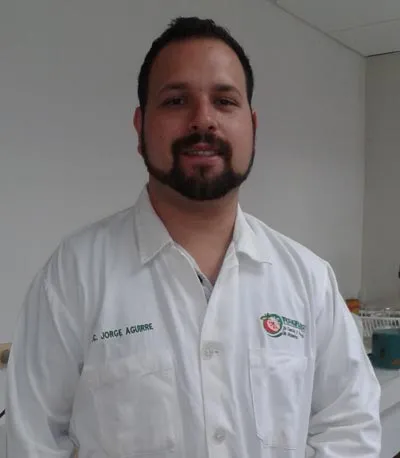The School of Health Sciences (ECS) of the Autonomous University of Coahuila (UADEC), Unit Norte, and Texas Tech University will develop a bilateral intervention project in the population, knowledge, application and detection for the development of Diabetes Mellitus Type 2and promote their prevention in the border region of Mexico and the United States.
The research entitled “Nutrition Education Intervention for the Prevention of Type 2 Diabetes on the border between Mexico and Texas” (Nutrition Education Intervention for the Prevention of Type 2 Diabetes in Mexican-Texas Border) will focus mainly on the bad habits parameterfood in the population on both sides of the border.
Dr. Jorge Alejandro Aguirre Joya
“The project is bilateral with Texas Tech University.The idea is to prevent the development of type 2 diabetes mellitus on both sides of the border.An intervention in priority care communities on both sides will be made, both in Texas and Coahuila, to evaluate the influence of bad feeding habits on the development of type 2 diabetes through group advice, ”said Dr. Jorge Alejandro AguirreJoya, research professor at the School of Health Sciences of the UADEC, North Unit, and responsible for linking the institution.
This project seeks to teach participants how through good diet you can prevent the development of this disease, as well as the signs and symptoms that it can present.
"It aims to educate on the subject as well as generate empathy among participants and create greater interest in well -being."Information brochures are also delivered "clarifying doubts, seeking to re -educate about the information of type 2 diabetes, having this information at hand in a practical and concrete way," said Science Teacher Fabiola Carrales González, Nutrition Professor of the ECS.
According to scientist Jorge Aguirre, diabetes is a highly incident disease in our time, especially in the border area, which includes Texas and Coahuila, eating habits are shared that favor the development of this type of disease.
"Then, attending to these food practices, it is intended to reduce the incidence of this type of disease, mainly in this first approach to priority care zones," said the person in charge of linking the School of Health Sciences.
Initially, the public to which the intervention project is directed is towards people in priority care areas, with a low economic perception index, both in Coahuila and Texas.
“When we think of bad feeding habits, we think of hypercaloric diets, diets surpassed in calories.However, you also have to turn to see the areas in which good food is not being received by an economic deficit, thus being the food 'scrap' the most accessible, and this develops diseases such as type 2 diabetes, ”said the teacherin Fabiola Carrales sciences.
The project will begin in August and will last three months in which three indicator measurements and population training will be made.During the first month, the initial evaluation of the anthropometric parameters of the population will be done, then talks will be offered to teach them to have a good diet and good diet.This three -month period will be monitored to study the evolution of these anthropometric parameters in the population that receives training in nutrition issues.
This study will be coordinated, on the American side, by Dr. Mary Murimi, of the Department of Human Sciences of Texas Tech University, and the nutritionist Ana Moyeda Carabaza, assistant toresearch of the same institution.In Mexico, the study will be coordinated through the Nutrition Area of the School of Health Sciences by Dr. Guillermo José Tuirán Gutiérrez, the science teacher Fabiola Carrales González and Dr. Jorge Aguirre Joya.
Regarding the reason to develop this project in the border region of both nations, the researchers pointed out the importance of diabetes as a public health problem in the region.In addition, there are social and cultural issues that are shared in these border areas, and it has been shown that there is more empathy and similarities between these regions, despite being from different countries.
“Food, among other culture issues, is shared in these border areas, it has been shown that there is more empathy in these areas;Although they are from different countries, they make up a border strip that shares cultural and food habits that differ, to a large extent, from the rest of their respective countries, ”said Dr. Jorge Aguirre.
The specialists clarified that, for the moment, the project is only focused on diabetes.Based on the results, both institutions contemplate working together on the issue of prevention of diseases related to food and treatment, through adequate food and the use of products and/or functional foods.
"There is low -income Spanish -speaking population in both countries with similar eating habits, promoting the appearance of metabolic diseases, in this case, Diabetes Mellitus 2, and that is why interest in this population," added the nutritionist Fabiola Carrales.
In the present, the School of Health Sciences is beginning the development of beneficial products in the area of functional foods and in the medium term its implementation is expected in relation to projects of this type.
“After this, the idea is to obtain favorable results, reduce the development of the parameters that indicate the appearance of type 2 diabetes mellitus and replicate this diet along the border, throughout the population possible.Also continue collaborating with Texas Tech University to generate more research studies, more direct interventions to the population that favor their lifestyle, always accompanied by scientific bases, ”said scientist Jorge Aguirre Joya.




